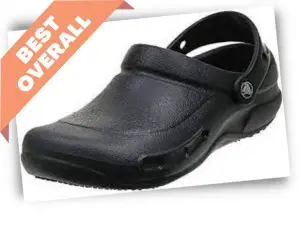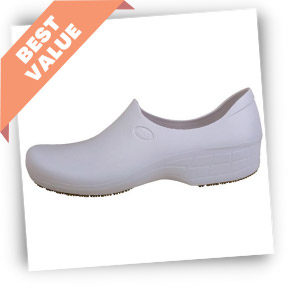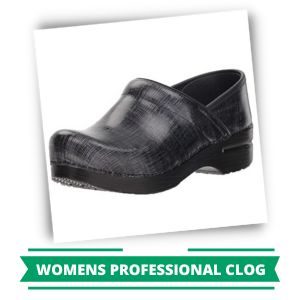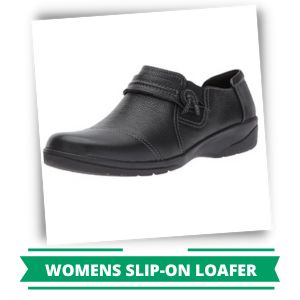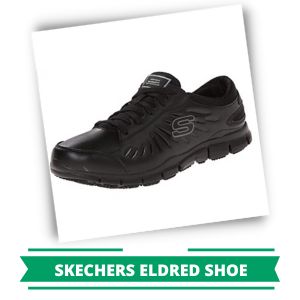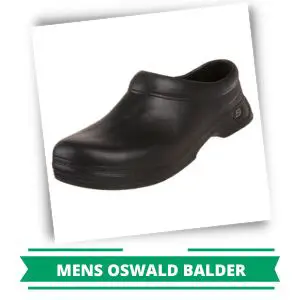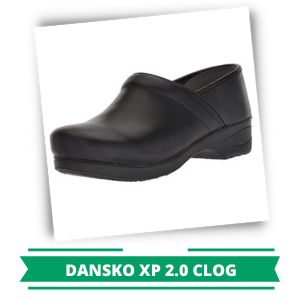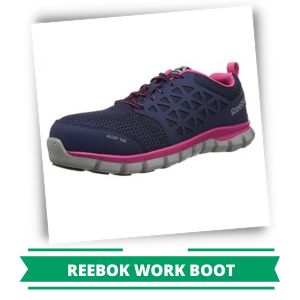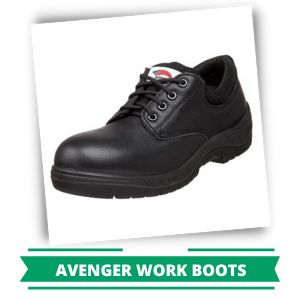Laboratory, hospitals, and clinic workers need to keep themselves safe. Not just from sickness and diseases but also from other hazards and threats within their working environment. Wearing the proper shoes will keep their feet from those mentioned harms, and it is also company policy.
To make sure you pick the right pair for your job, our team researched the best lab shoes in the market and listed them down on this roundup.
OUR #1 RATED
Crocs Unisex-Adult Bistro Clog
- Very reliable
- Very easy to clean
- Affordable
- Slip-resistant
- Protects feet well
OUR #2 RATED
HKR Lightweight Mesh Non-Slip Work Shoes
- Lightweight
- Very comfortable to wear
- Easy to slip on
- Sturdy shoes
- Very affordable
OUR #3 RATED
Sticky Comfortable Work Shoes for Women
- It fits like a glove
- Very comfortable
- Lightweight
- Good ankle support
- Easy to clean
Table of Contents
Top 10 Shoes For Laboratory Work
1. Crocs Unisex-Adult Bistro Clog
Crocs have a slip-on design, plus 100% synthetic materials that make it comfortable and bring structural support.
It has proper arch support and is slip-resistant.
These are easy to clean, and it also has an enclosed toe design that can save your feet from spills.
You can be sure that these laboratory shoes can keep you from physical hazards while providing comfort.
PROS
- Very reliable
- Very easy to clean
- Affordable
- Slip-resistant
- Protects feet well
CONS
- Not for outdoor use
2. HKR Lightweight Mesh Non-Slip Work Shoes
PROS
- Lightweight
- Very comfortable to wear
- Easy to slip on
- Sturdy shoes
- Very affordable
CONS
- Quality control issues
- Soles are hard plastic
3. Sticky Comfortable Work Shoes for Women
Sticky created shoe types that would fit individuals who work on their feet for a long time.
The rubber sole provides comfort and ankle mobility. It highly absorbs shock, and it has a reliable non-slip outsole that also works in outside environments.
It is tested to withstand protruding objects and impacts from sharp materials.
PROS
- It fits like a glove
- Very comfortable
- Lightweight
- Good ankle support
- Easy to clean
CONS
- Not long-lasting
- Quality control issues
4. Dansko Women's Professional Clog
Dansko has created pairs of comfortable shoes with reliable arch support for the wearer for the entire day.
It features an instep with a padded collar for ease of use, especially when working in a lab. It also features a safety toe and a breathable PU foam footbed with temperature control.
It has breathable leather and fabric uppers. Shock absorption is very similar to athletic footwear.
Plus, it also reduces foot fatigue because of its rocker bottom.
PROS
- Great quality
- Good amount of support
- Comfortable toe box
- Looks stylish
- Secures feet well
CONS
- Takes time to break-in
- A bit costly
5. Clarks Women's Cheyn Madi Slip-On Loafer
Clarks has been around since 1825, so there are no questions about their shoe-making capabilities.
They have ladies’ pumps, men’s shoes, and other types of shoes popular worldwide but can be used as a slip-on loafer in research facilities, hospitals, clinics, and laboratories.
It is 100% leather which is great for protection, and it also features an ortholite sock liner.
It also has synthetic uppers and a sole made of synthetic material.
PROS
- It looks and feels great
- Sturdy
- Perfect fit
- Very comfortable
- Reasonably priced
CONS
- Quality Control issues
- Not good with chemical spills
6. Skechers (Eldred Shoe)
Skechers is a known shoe brand that also produces reliable laboratory footwear. The Eldred Shoe, particularly, is made of 100% leather.
It has a leather upper and has memory foam insole. A good fit for laboratory work because it provides protection and comfort simultaneously.
It also fits the dress code while giving a fancy look because of the leather Ghillie lacing system.
It is also made with a roomy toe box to give the wearer a relaxing feel when used.
PROS
- Very comfortable insoles
- Stylish
- Fits snugly
- No need for a break-in
- Slip-resistant
CONS
- Quality control concerns
- Lack of quality
7. Skechers Mens Oswald - Balder
This product from Skechers focuses more on being slip-resistant.
The rubber sole and outsole provide good ground grip.
It has a shock-absorbent footbed, and it also has ventilating ports on its medial side. It has a flexible sole that prevents heel pain.
And it also has a safety toe feature.
The PU insole is removable for easy inside cleaning. The materials used are also good quality and waterproof.
PROS
- Shoes fit great
- Easy to clean
- Lightweight
- Reasonably priced
- For indoor and outdoor use
CONS
- Sole pads are glued
- Has uncomfortable plastic parts
8. Dansko XP 2.0 Clog
This is another product from Dansko, made for laboratory work and the likes.
It is made of genuine leather and has a rubber outsole, unlike other cheap upper fabric shoes that do not withstand sharp and protruding objects.
These are made of durable genuine leather with a roomy toe box for your toes to wiggle around.
It fits the company’s dress code and is very light to wear.
It features a soft padded tongue for easier cleaning.
PROS
- Comfortable
- Fancy looking
- Good arch support
- Lightweight
- Can be dress-shoes
CONS
- Takes time breaking-in
- Not for excessive walking
9. Reebok Sublite Cushion RB045 Work Boot
Reebok also made their own work boot shoe styles. It is made for lab work, hospital, and clinic settings.
It has a durable rubber outsole with a memory foam footbed that provides great contours for comfortable cushioning.
Though these are lightweight, it still features an alloy toe cap for additional weight reduction and flexibility.
It also features an anti-fatigue rocker bottom, making it great to use as running shoes apart from research facility uniforms.
PROS
- Great protective toe option
- Comfortable and stylish
- It appears like regular sneakers
- Great for high arches
- Very comfortable soles
CONS
- Not so good with toes
- Not very good with walking
10. Avenger Work Boots
These boots are among the most trusted footwear used for laboratory work, construction, restaurant, and other environments requiring full safety and protection.
It boasts durable materials, making these shoes for work range dependable.
Its ergonomic design is also one of the features that make it well-loved.
PROS
- Built well
- Very comfortable
- Good quality construction and materials
- Sturdy
- Lightweight
CONS
- Has fitting issues
- A little Pricey
Buying Guide

Comfort & Support
When looking for the best shoes for laboratory work, a feature you need to look for is comfort. It should give you a relaxing feel as you step onto it. The proper cushioning and contour are necessary to provide comfort and support, especially since the wearer is bound to be on their feet for a long period. Search for those approved by APMA (American Podiatric Medical Association).
Uppers
Laboratories pose great threats because of chemicals (1) that can spill or are already on the floor. Wearing closed-style shoes with a leather or synthetic upper is a necessity. Find uppers that provide breathability and comfort simultaneously and have ventilation to keep the lining of your shoes cool and dry. You can choose from canvas uppers, leather or synthetic uppers, or one with a mesh upper for as long as your company approves it.
Slip Resistance
Searching for the best shoes that provide excellent slip resistance is a must. You can look for a thick rubber outsole because it has a strong grip and firm traction. These should be made of premium materials guaranteed to meet ASTM standards. Search for lab shoes with an oil-safe rubber outsole, protective footwear that can withstand hazardous chemicals.
Durability
The perfect laboratory footwear is a pair that brings structural support and something that lasts long. One with a wide heel supports the user’s weight steadily, which translates to unnecessary foot twists. It extends its lifespan and makes it durable. Also, ensure that the manufacturer is known for using quality materials.
Materials
The product’s durability relies greatly on the materials used in creating these lab shoes. There are many dangers and chemicals on the laboratory floors. Therefore, you need to search for the one made of high-quality materials. Also, search for those tested numerous times before it is brought to the market.
Shock Absorbency
Good lab footwear should have high shock absorbency. The force of impact that goes to your heal makes forward movement difficult. High shock absorbency will allow the kinetic energy to spread evenly in your body each time you take a step.
Outsoles
A laboratory work shoe needs to be sturdy and comfortable, but it should protect the wearer most of all. Outsoles should be slip-resistant as laboratories are prone to have chemical and water spills.
Protective Features
You can find many protective features in lab shoes, such as a steel toe, while others have alloy protective or composite toe. Others have an open-cell polyurethane footbed or memory foam footbed. While some features electrical shocks and chemical hazards protection.
Cost
The cost of the laboratory shoes would depend on the materials used. While you need comfort with shoes for laboratory work that athletic shoe types provide, this comfort decreases in time and costs higher than those that durable rubber outsole.
Also Read:
FAQS
Lab technicians wear non-porous shoes with water and bloodborne pathogen resistance. It should also be closed-toe and closed-heel with a chemical-resistant sole. The best shoes for laboratory and other modern working environments should also have a chemical resistant layer and are made of electrical hazard safe materials.
You should never wear an open-toe or shoes with open-heels when doing laboratory work. Examples of these are flip-flops, clogs, and sandals. Avoiding uncomfortable high-heeled shoes is advisable.
You can wear sneakers to the lab, provided that these are lab sneakers not made of cloth or mesh materials. Laboratory work is prone to chemical spills, and sneakers may provide great comfort, but it has limited protection.
And The #1 Lab Shoes Are...
Our number 1 lab shoes are Crocs Unisex-Adult Bistro Clog. Most of these products on the lists are made to protect the wearer, but we considered how these are made extra-safe caused us to decide to place them on the top. The electrical hazard safe materials and having slip resistance design made it perfect for laboratory work and the likes.
Quality and comfort are also what Crocs boasts about, apart from its stylish designs. This is a laboratory work shoe, but regular individuals wear shoes like these to ensure their everyday safety.
Thank you for reading this far! I hope that the information provided in this article will be helpful to you.
OUR # 1 Recommendation
Crocs Unisex-Adult Bistro Clog
- Very reliable
- Very easy to clean
- Affordable
- Slip-resistant


